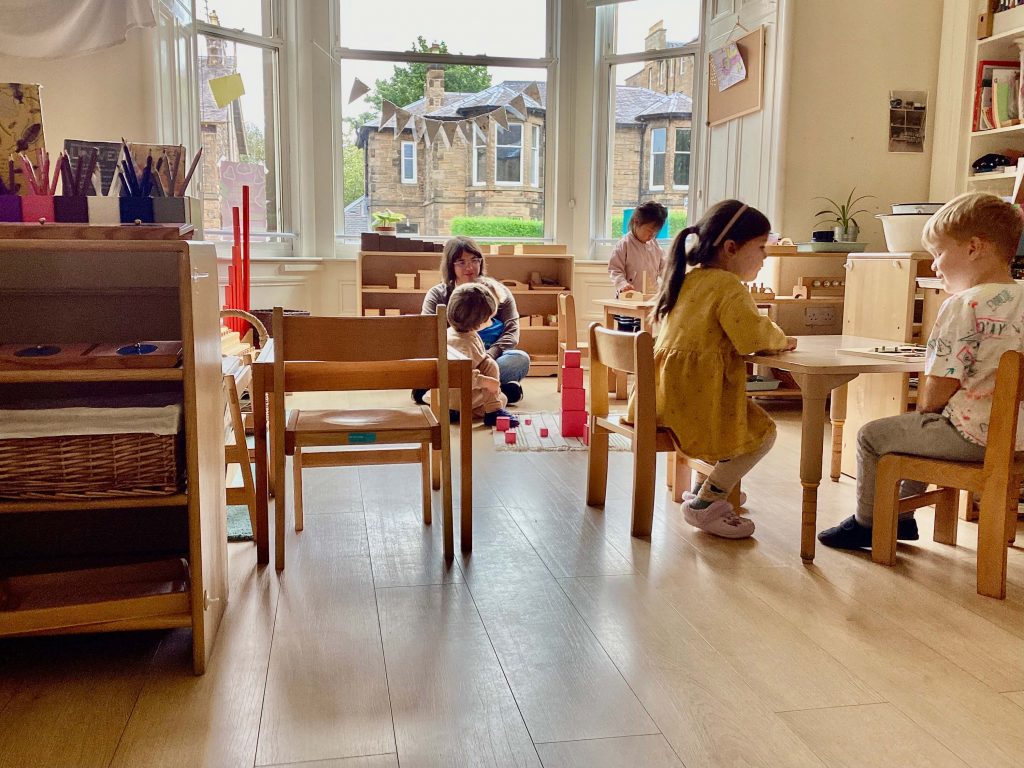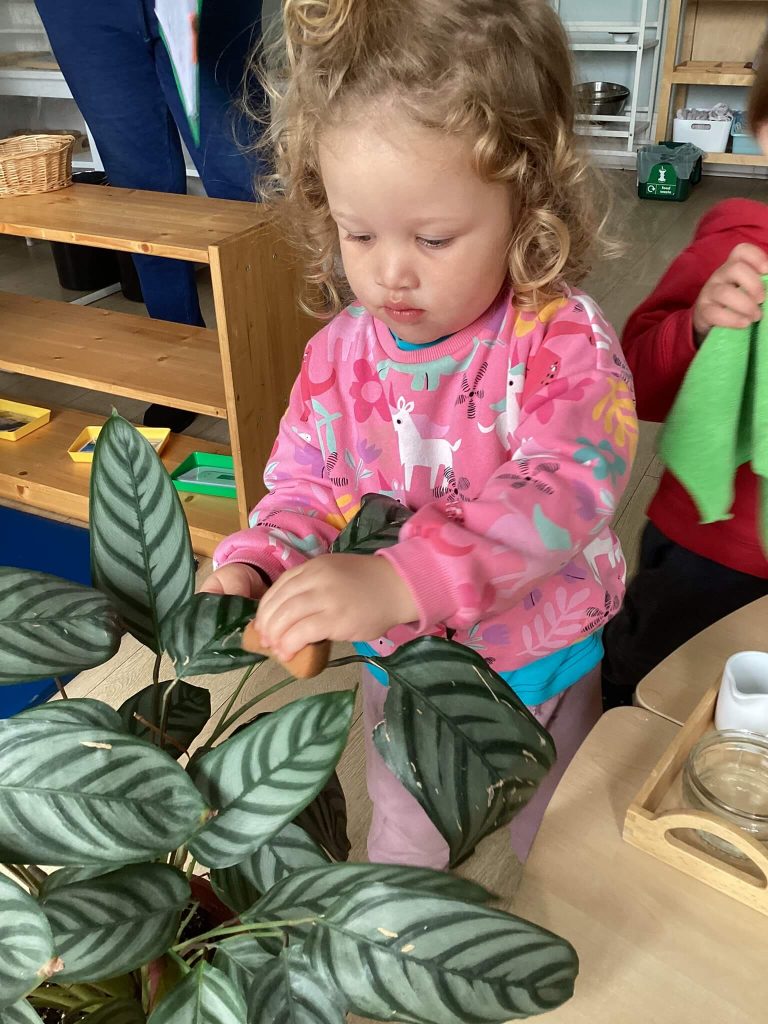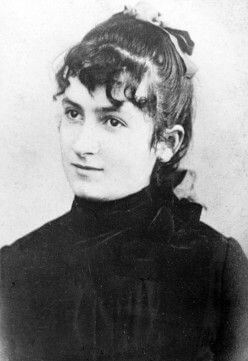About Montessori

Montessori is…
…a unique approach to education that focuses on nurturing a child’s innate potential through keen observation. Maria Montessori (1870–1952) was an Italian physician, educator, and innovator who revolutionised early childhood education. She was one of the first women in Italy to earn a medical degree and initially worked with children with special needs. She believed that children learn best when given the freedom to explore in a structured environment tailored to their developmental needs. Her methods generated self-motivated, independent learners who flourished—intellectually, socially, emotionally, and physically—and today, Montessori education is a growing movement, replicating these results in homes and schools worldwide.
Montessori Principles

Love of Work
Meaningful, Productive Activity Grounded in Reality
Montessori education fosters a deep love of work, where children engage in activities that are purposeful, hands-on, and rooted in real-life experiences. Rather than seeing work as a chore, Montessori children take pride in meaningful tasks, whether it’s preparing a snack, caring for plants, or using carefully designed materials to explore mathematical and language concepts.
This principle instils a sense of responsibility, intrinsic motivation, and joy in learning, as children come to understand that their efforts have real value and purpose in the world around them.

Concentration
Becoming a Focused, Self-Regulating, and Self-Directing Learner
Montessori classrooms are designed to cultivate deep concentration by providing children with long, uninterrupted work periods and self-chosen tasks that truly engage them.
When children become fully absorbed in an activity, they enter a state of “flow,” developing patience, problem-solving skills, and the ability to focus for extended periods. Through this process, they learn to self-regulate, directing their own learning and developing persistence—a skill that benefits them well beyond the classroom.

Self-Discipline
Independence and Order in Thought and Action
Montessori education nurtures self-discipline by allowing children the freedom to make choices within a structured environment. Instead of relying on external rewards or punishments, children learn to internally regulate their behaviour through self-motivation and a natural sense of order.
Practical life activities and consistent routines help develop responsibility and organisation, while the freedom to explore fosters independent thinking. Over time, children gain control over their actions, make thoughtful decisions, and approach challenges with confidence and resilience.

Sociability
Respect, Kindness, and Generosity Towards Others
Montessori classrooms promote a strong sense of community, where children learn to interact respectfully, collaborate, and support one another. The mixed-age setting encourages younger children to learn from older peers, while older children develop leadership skills and empathy by guiding others. Lessons in grace and courtesy—such as greeting others, resolving conflicts and offering help—reinforce values of kindness and mutual respect. By fostering cooperation, Montessori education helps children grow into compassionate, socially responsible individuals who contribute positively to their communities.
School nursery or Montessori?
The Scottish education system follows a structured national curriculum, with a strong emphasis on outcomes, teacher-led instruction, and assessments. Children are grouped by age, and learning is typically delivered through a whole-class syllabus, focusing on subjects like English, maths, and literacy as distinct blocks of study – and school nursery is preparation for this.
School nurseries offer “play-based learning” which is predominantly socio-dramatic, sensory and creative play, with numbers and letters taught through adult-led activities. Increasingly, children in nursery and P1 are taught using screen-based games. Some maths and science topics are not offered in great depth until later primary.
By contrast, Montessori education offers an expansive range of inter-connected topics and takes a student-led approach, guiding children to learn in an unhurried manner. Their classroom experience offers an underlying order that allows each child to remain purposefully active and engaged with carefully designed, physical materials that encourage independent, sequential skill-building and discovery.
Teachers demonstrate the materials through short, 1:1 presentations. Children do not have direct access to screens though they participate in using them to find information. Instead of following a pre-determined syllabus, Montessori classrooms provide a range of experiential, joined-up “playful work” linking to children’s existing knowledge and interests allowing them to learn at their own pace.
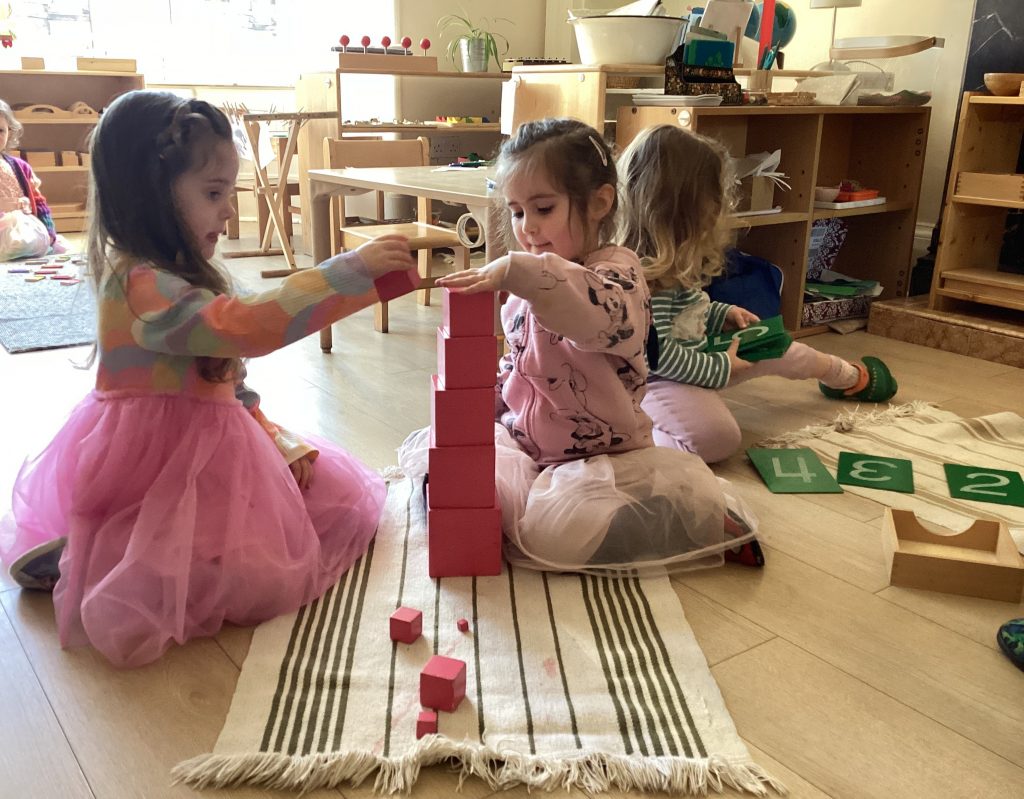
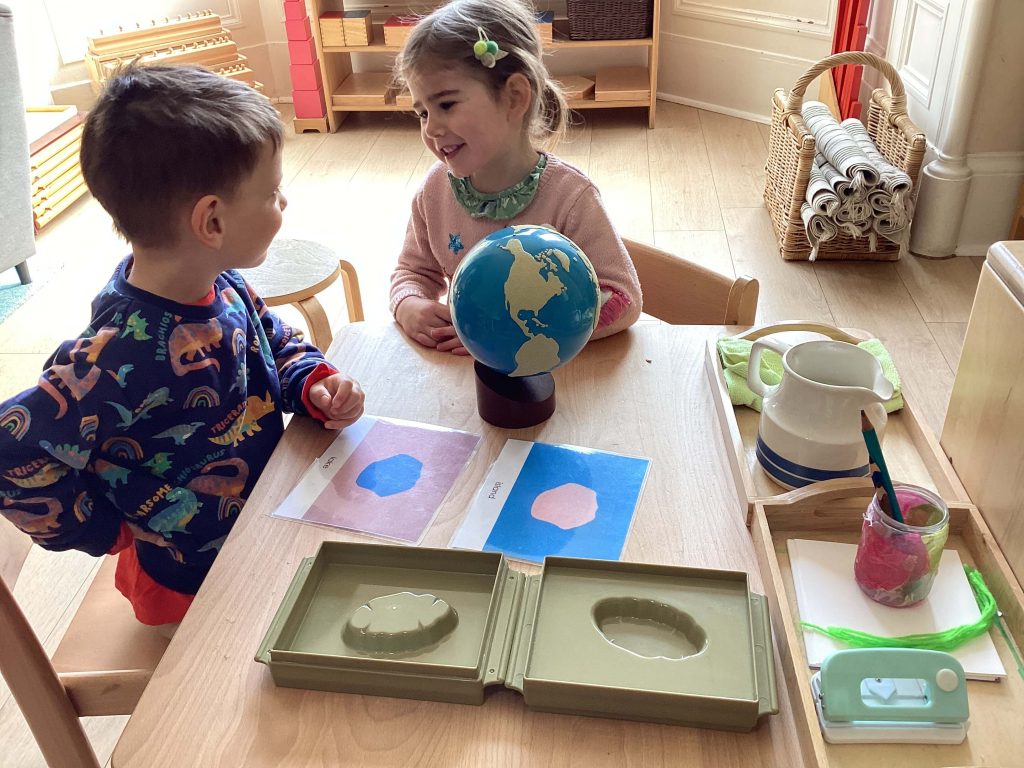
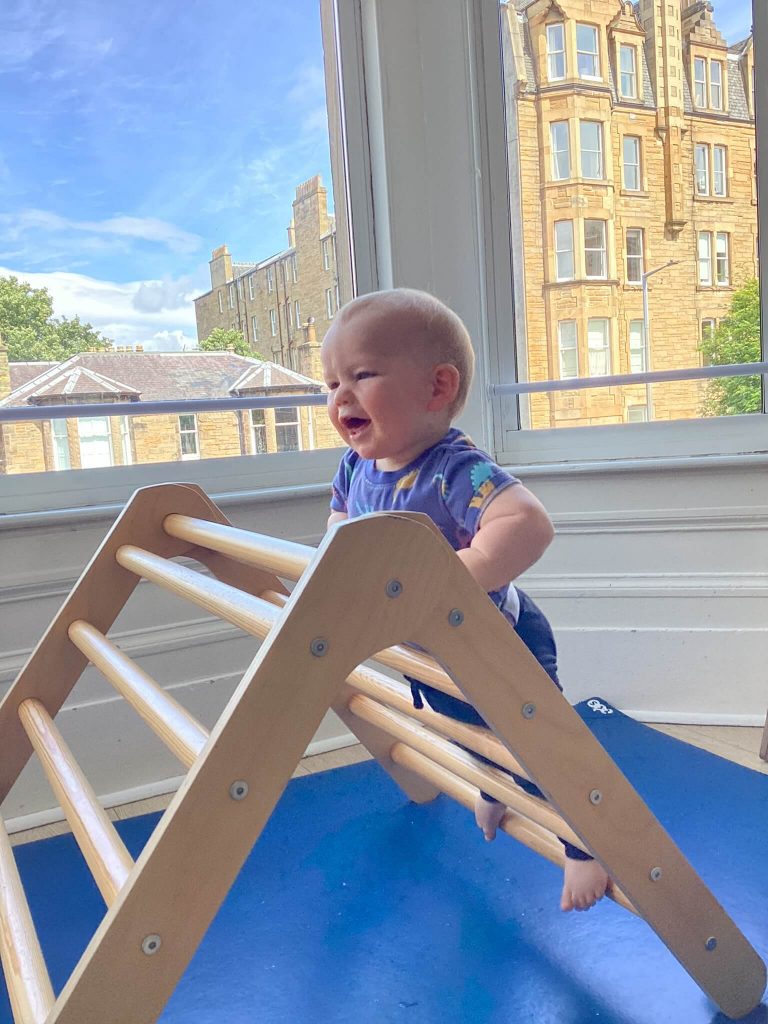
Join the waiting pool for our Nido under-3s environment.
Create a foundation for lifelong success!
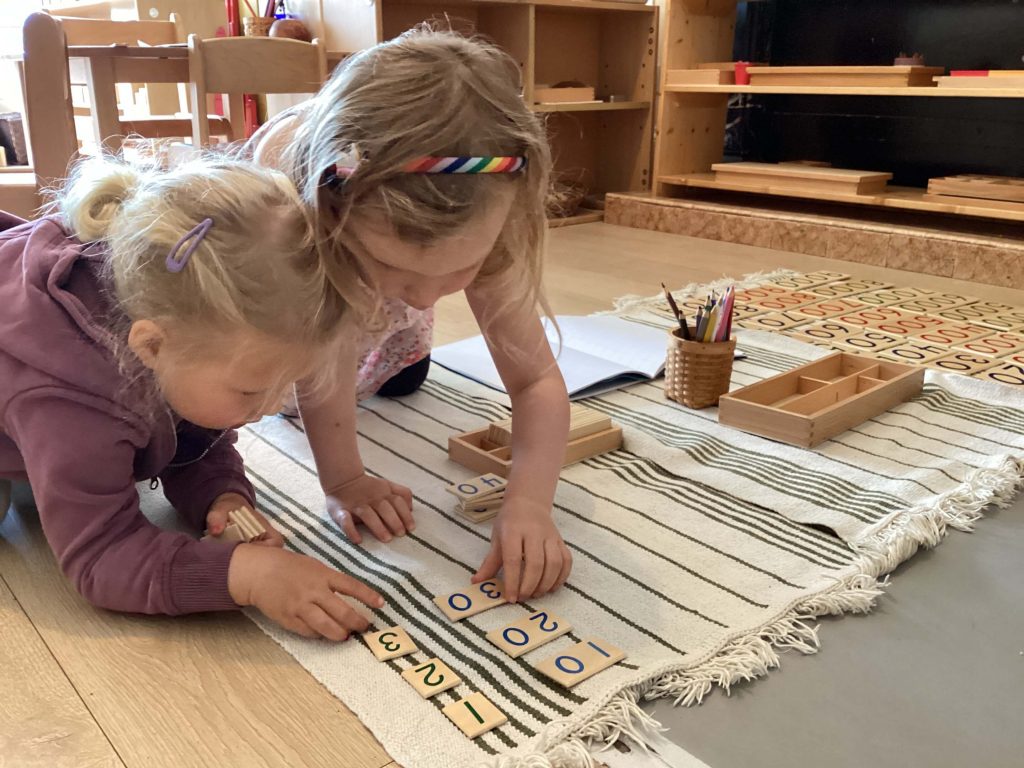
Apply for Casa preschool enrollment.
See Montessori education in action!
“The child is endowed with unknown powers, which can guide us to a radiant future. If what we really want is a new world, then education must take as its aim the development of these hidden possibilities.”
-Montessori, The Absorbent Mind
Contact Us
If you are interested in applying please click the relevant link below, otherwise fill out the form and we will get back to you as soon as possible.

